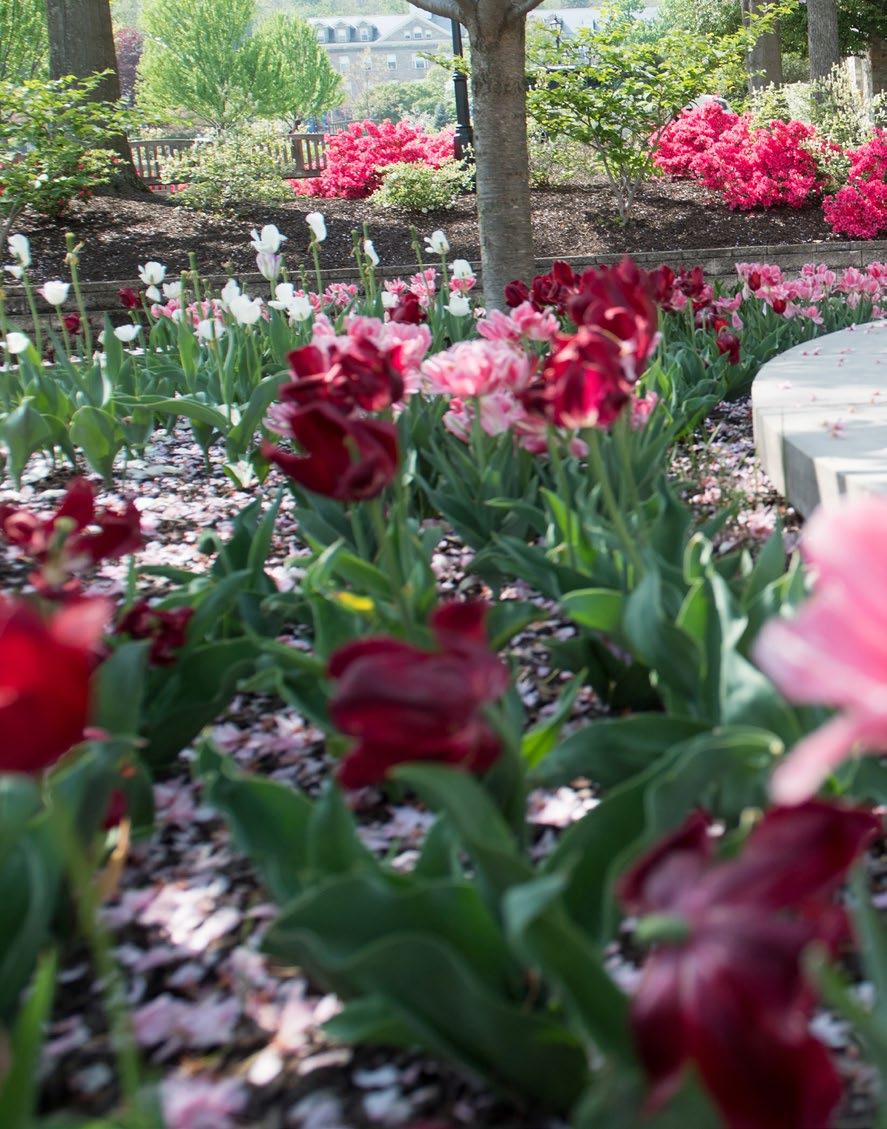Photo captured before the pandemic.
Courageous Conversation, Meaningful Action FOLLOWING THE EVENTS OF THE SUMMER OF 2020 that made more people across the country cognizant of social injustice and racism issues, many Mount St. Mary’s students returned to campus ready to work toward equity and inclusion and engage in sometimes uncomfortable dialogue. Throughout this year, students of all races and ethnic backgrounds have come together for prayer vigils, discussions, lectures and other events as we seek a better Mount. Over the last decade the Mount has welcomed an increasing number of Black, Indigenous and people of color (BIPOC) students, with the percentage growing from 17% to 43%. While these shifting demographics have brought diverse culture and ideas, the change has not been without challenges the university continues to work to eliminate. Principles of Catholic social teaching are at the core of the 213-year-old Mount St. Mary’s, especially in the university community’s commitment to improve and sustain a culture of dignity and respect for everyone. “All of us are called to
1 0
FEATURE SPRING 2021
live out the Mount value of inclusion: the Mount must harness the energy created by diversity of thought and engendered by a richly diverse staff, faculty and student body to ensure that all feel welcome and included,” states the university’s diversity, equity and inclusion (DEI) webpage. “A diverse, equitable and inclusive Mount culture benefits our students…not only during their time here, but also after they leave the Mount as they will be prepared for success in an increasingly multicultural world. Diversity, equity and inclusion is about who we are and what we do.” Vice President for Equity and Success Paula WhetselRibeau, Ph.D., came to the Mount nine years ago to lead the university’s DEI efforts and can point to many successful initiatives that have improved the college experience for BIPOC students. “This difficult but rewarding work to which we are fully committed is a marathon rather than a sprint,” she explained. “A lot of our efforts center on stereotypes, unconscious bias and microaggressions. For example, when Caucasian community members emotionally hurt BIPOC students, it causes even more pain to respond that their intent or behavior was well meaning. Regardless of intent, the impact is what matters.” Whetsel-Ribeau leads the Mount Inclusive Excellence Committee, which draws members from across the university. The committee developed a five-year DEI plan and implemented initiatives, including a periodic social justice teach-in, student support groups for men and women of color, assessment of DEI content in the curriculum, integrated learning and living communities, a campus climate survey and professional development for faculty, staff and administrators.


























